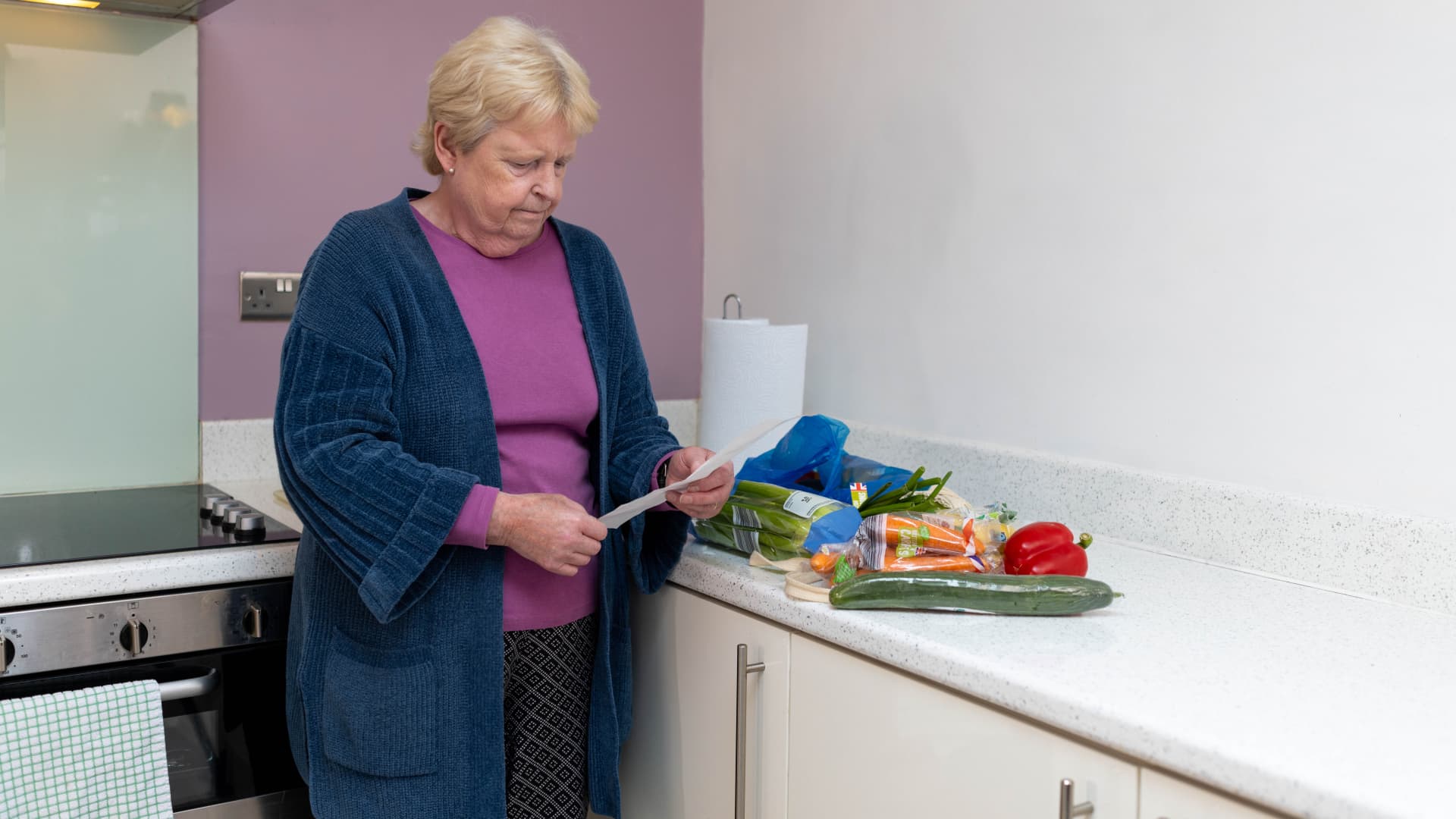The poverty rate among Americans over the age of 65 is on the rise.
According to the latest U.S. Census Bureau data, the share of older people in the U.S. living below the poverty line rose to 10.3% in 2021 from 8.9% in 2020.
That means nearly 6 million older adults in the country are struggling to make ends meet.
More from Personal Finance:
How student loan forgiveness will be applied to your debts
Key events on the path to student loan forgiveness
How to calculate your bill for student loan forgiveness
“This increase shines a glaring spotlight on the fact that Social Security and Medicare, the bedrock of retirement security for so many, are not sufficient to lift all older adults above poverty,” said Ramsey Alwin, president and CEO of the National Council on Aging.
Fortunately, there are thousands of resources available to struggling seniors. Here are some steps older Americans can take to relieve some of the pain of poverty.
Apply for food benefits
Many seniors aren’t taking advantage of all the food assistance available to them, experts say. A 2015 study found that less than half of eligible seniors participated in the federal Supplemental Nutrition Assistance Program, or SNAP.
“For seniors, there tends to be a lot of misunderstanding about the program and a lot of stigma, and unfortunately that stands in the way of people seeking help,” said Josh Protas, vice president of public policy at MAZON: A Jewish Response to Hunger.
The extra money can go a long way for retirees on a fixed income: The maximum benefit a month for a household of one is $250. Grocery stores, online retailers and farmers markets accept the funds.
SNAP has rules around how much you can own in assets and earn in income to get the aid, and Social Security checks are factored in. Still, certain expenses, including your rent and child care costs, may be deducted, and experts say anyone who suspects they could qualify should apply.
The U.S. Department of Agriculture also has the Commodity Supplemental Food Program, under which certain low-income people over the age of 60 are eligible for a monthly food package containing fruits, vegetables, cheeses and more.
Meanwhile, retirees covered by a Medicaid health plan benefit may be eligible for free food through Mom’s Meals. And some Medicare Advantage health plans offer meal benefits under the program for those recently discharged from a hospital or dealing with a chronic disease.
The meals are typically delivered every two to three weeks, and include dishes like Salisbury steak, pasta and meatballs, and sweet and sour chicken. People can let the program know of any allergies, and they accommodate for diets suited to vegetarians as well as to those with certain conditions like cancer or diabetes.
A spokesperson for Mom’s Meals recommended seniors who think they might qualify for the free meals contact a Medicaid or Medicare representative.
Get help with health insurance and drug costs
Pricey health insurance and prescription costs can take a big bite out of retirees’ incomes.
Fortunately, some seniors may be eligible for assistance keeping up with their monthly premiums under the Medicare Savings Program, said Caitlin Donovan, a spokeswoman for the National Patient Advocate Foundation, a nonprofit that helps patients access and pay for health care.
“If you qualify, your premiums, deductibles and copays will be covered, which would be an enormous financial relief for anyone,” Donovan said.
In addition, those enrolled in Medicare Part D, which covers prescriptions, should look to see if they qualify for Extra Help. That program can reduce the costs related to your drugs. The benefit can be worth more than $5,000 a year, Donovan said.
There are also a number of charitable organizations that assist seniors with health care expenses. For example, at Copays.org you can apply for funds to put toward copays, premiums, deductibles and over-the-counter medications.
The National Patient Advocate Foundation has a financial resource directory in which you can search for local aid for everything from dental care to end-of-life services.
Other options …
While you have to be extremely low-income to qualify, some retirees will be eligible for the Supplemental Security Income program, a means-tested program for those over the age of 65 or with a disability.
Last December, more than 2.5 million people received both Social Security and the supplemental payment, which can be as high as $841 a month for an individual. You can apply on the Social Security Administration’s website or by calling 800-325-0778.
For more help, the National Council on Aging has a “benefits checkup” website where you can learn about more than 2,000 resources available to struggling seniors by ZIP code. The council also has a guide called You Gave, Now Save, including information on the most generous benefits that help older people with expenses like their phone bill and property taxes.
In addition, some older people may be able to take on a little part-time work to increase their income.
More than a third of Americans over the age of 65 are currently working part time, according to Teresa Ghilarducci, director of The New School’s Retirement Equity Lab.
The U.S. Department of Labor has a program that helps low-income, jobless seniors find work and get certain training, Ghilarducci said. Another resource is the national nonprofit SER and its network of community organizations that offer job training.
